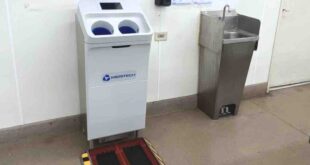Monolith, artificial intelligence (AI) software provider to the world’s most innovative engineering teams, has developed the industry’s first AI-powered Anomaly Detector software that can discover a broad range of issues in test data at an unprecedented rate. It does this by automating the process of raw test data inspection to look for potential errors or abnormalities across hundreds of test channels.
The impact of failing to recognise issues with test data in a timely manner can be huge, including months of wasted testing and potential product delays and recalls, leading to unnecessary costs ranging from millions to billions of dollars, studies have found*.
Data anomalies caused by measurement or sensor errors, user errors, system malfunctions, or incorrect usage of the system during testing, can now be found quickly and more efficiently thanks to Monolith self-learning algorithms.
Dr. Richard Ahlfeld, Monolith CEO and founder said: “Bad data leads to wrong decisions and massive time wasted among highly valuable engineering resources. If discovered too late, these errors can also lead to schedule delays, or worse, quality issues that are released with the product leading to potentially expensive and reputation-harming recalls.”
“We’ve spent more than two years working directly with our customers to design, test, and tune our new Anomaly Detector so engineers can rapidly find errors in engineering data. In that time, we’ve not only developed a unique deep learning algorithm that can find multiple types of anomalies, we’ve also packaged it in a no-code user experience built specifically for engineering domain experts. This is useful AI developed by engineers for engineers.”
Monolith has developed and tested its new Anomaly Detector AI in real-world applications with existing customers, predominantly in automotive, motorsports and industrial segments. In working directly with customers, the Monolith team was able to create a unique deep learning algorithm that finds many types of anomalies within test results and across hundreds of channels based on complex system behaviour. Users can tune the anomaly detector for speed or depth of inspection, as well as for prevalence or severity of anomalies. Using an intuitive two-dimensional heat-map display, engineers can quickly peruse the results and rapidly recognise which tests or channels are showing questionable results to prioritise next steps.
Anomaly Detector is a new release in the Monolith platform of AI-powered tools, and follows the launch of ‘Next Test Recommender’ in 2023, software that gives active recommendations on the most valuable test conditions to validate during the development of hard-to-model, nonlinear products.
The power of the Monolith platform lies in its ability to reduce the amount of physical testing time and simulations required to develop products with highly complex, intractable physics throughout the design cycle. Using valuable and sometimes limited engineering test data, Monolith makes instant predictions and enables engineers to identify areas where optimisation and development are required, without the extensive need for repetitive, time-consuming physical tests.
Monolith will host a webinar that takes a deep dive into its new Anomaly Detector technology on 9 April 2024. Click HERE to register.
 Engineer News Network The ultimate online news and information resource for today’s engineer
Engineer News Network The ultimate online news and information resource for today’s engineer



